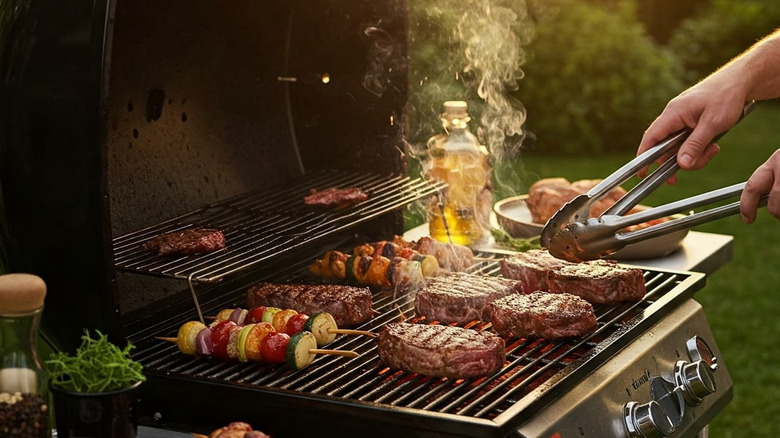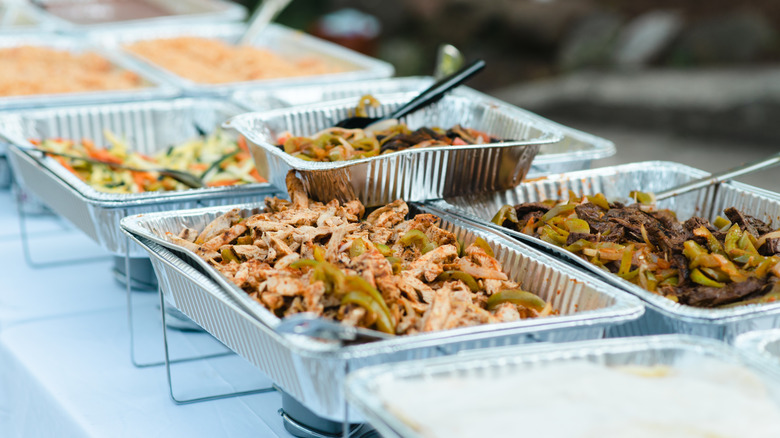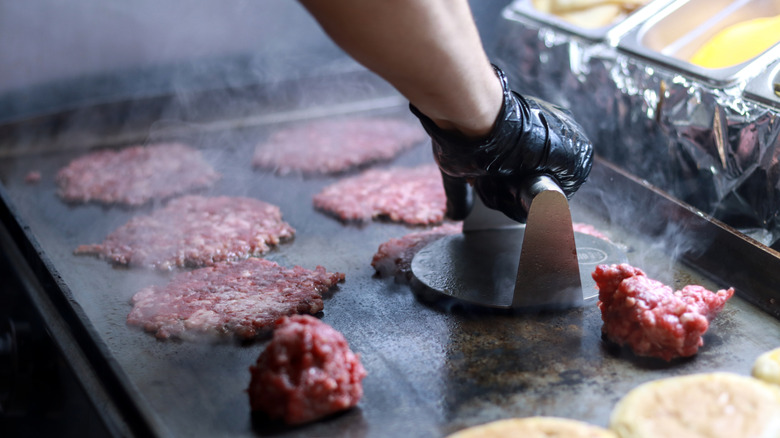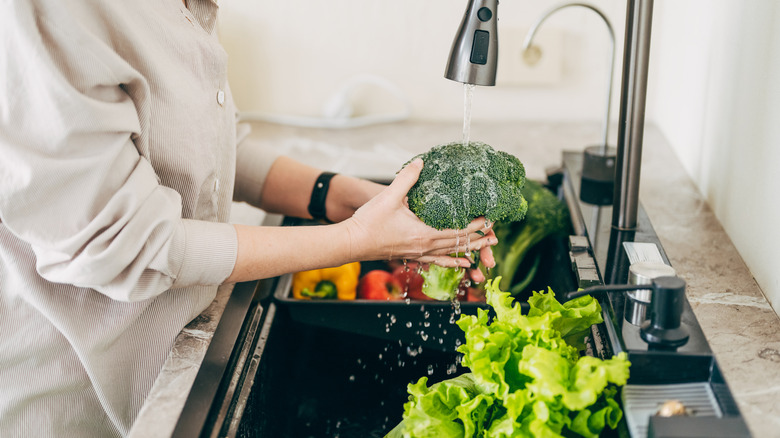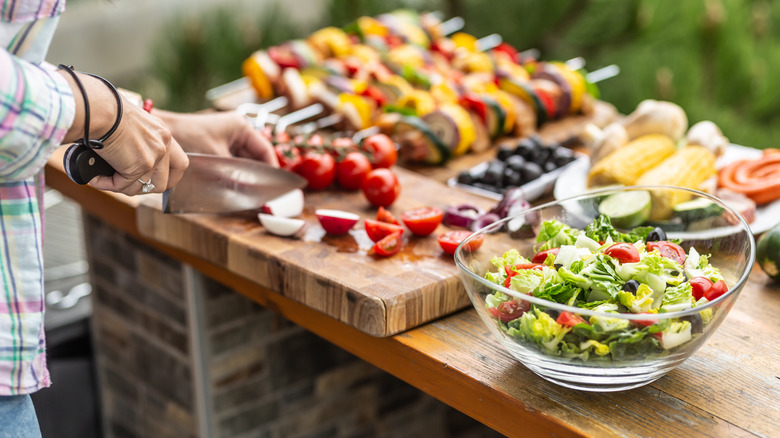4 Food Safety Guidelines That'll Help Keep Your Fourth Of July BBQ Stress-Free
All winter, you stare at the grill in your backyard or reminisce on your favorite day at the park when you could prep all of the barbecue your heart desired. Finally, as summer hits, it's time to dine al fresco — but this Fourth of July, keep in mind that food safety is always paramount. Warmer temperatures might impact how long those barbecued foods can stay out in the sun.
There are some tips and tricks for properly preparing food for a barbecue, from planning the menu ahead of time to keeping cleanup easy by using paper plates and cups. But through the planning, food safety should remain at the forefront. Always keep the cooler closed, and separate beverages from cold foods, so people can open the beverage cooler without exposing the perishable food to warm temperatures. If possible, place cold foods on the buffet table on ice, which helps them stay good for longer. Here are several other things to keep in mind this July Fourth to keep the festive feast as safe as it is fun.
Keep food out of the danger zone
Perishable foods are generally regarded as any foods that belong in the refrigerator or freezer. Meats, seafood, and condiments like mayonnaise are perishable, as well as eggs, plus peeled fruits and vegetables. Temperatures between 40 degrees and 140 degrees Fahrenheit — also commonly referred to as "the danger zone" — make these foods susceptible to faster bacteria growth. Never leave perishable foods, like cooked chicken, out for more than two hours between 40 and 89 degrees Fahrenheit.
If you're cooking outside on a hot 90-degree day, that time window drops to just one hour, as the range between 90 and 140 degrees Fahrenheit allows bacteria to grow even more rapidly. If you don't have access to a refrigerator, pack coolers with plenty of ice, and store perishable food in them. Keep the cooler in the shade to help prevent the ice from melting, and store a thermometer in the cooler, if possible, to make sure the temperature always stays below 40 degrees.
Avoid cross-contamination
Food safety isn't just about keeping food at the proper temperature. You also have to make sure to avoid cross-contamination. If you're using your hands to add burger patties to the grill, make sure you wash your hands thoroughly before touching anything else. Otherwise, bacteria or other contaminants from the raw meat can reach other surfaces, posing a health risk. Never touch buns, cheese, or other burger toppings with the same hands you've just used to handle raw meat. If you're grilling in a park where a sink and hand soap aren't accessible, bring hand sanitizer and antibacterial wipes to sanitize your hands and wipe down any surfaces.
The same rules apply for cooking tools. If you use a spatula to transfer a raw patty to the grill, do not use the same spatula to flip the cooked burgers or remove them from the grill, as this re-introduces bacteria to the food's surface. Pay attention when using other tools, like tongs and a burger press, to ensure they never make contact with both raw and cooked meat.
Some foods should be washed — and others shouldn't be
Barbecue chicken, side salads, and burger toppings all involve different meats and produce. When prepping for a barbecue, some foods should be washed, while others shouldn't. Washing all produce is necessary — even the produce with a rind or peel that you remove. Fruits and veggies can be full of dirt and sometimes pesticides, and it's important to remove this from the food's surface before you prepare that fruit salad or add lettuce to your burgers.
However, meat should never be washed. Some people make the food safety mistake of rinsing raw chicken, but the USDA says to avoid washing any meat prior to cooking it. Washing raw meat contributes to cross-contamination because the water hits the raw meat, then can splatter elsewhere in the kitchen or around your food prep space. As with other instances of cross-contamination, if you touch a surface with bacteria, then touch food, you can get sick.
Always confirm food allergies
If you're planning a Fourth of July party for a group, the first question you should ask when figuring out what to cook is if anyone has any food allergies. Food allergies can cause symptoms that range from mild to severe, and in extreme cases, they can result in death. While most people with severe allergies will carry an EpiPen, it's on you as the host to confirm which foods to avoid — and the level of severity — before preparing a menu.
Depending on your party's size, the best way to confirm food allergies is by sending an email or text directly to every member of the party (or sending a group email or text if other people are bringing food so everyone is in the loop). This keeps everything in writing, allowing you to go back and confirm allergies people mentioned to make sure you don't miss any. It also creates an easy way to follow up on your message if anyone does have any allergies to avoid.
